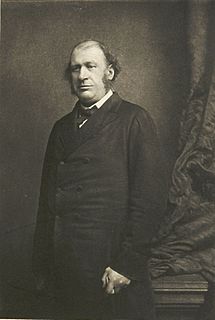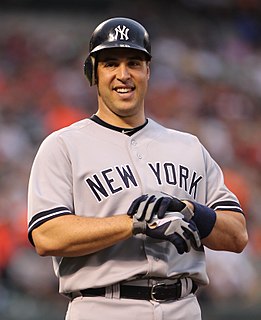A Quote by J. I. Packer
Every time we mention God we become theologians, and the only question is whether we are going to be good ones or bad ones.
Related Quotes
To me this question whether liberty is a good or a bad thing appears as irrational as the question whether fire is a good or a bad thing. It is both good and bad according to time, place, and circumstance, and a complete answer to the question, In what cases is liberty good and in what cases is it bad? would involve not merely a universal history of mankind, but a complete solution of the problems which such a history would offer.
The question is not whether the good outweighs the bad. The question is whether or not the good excuses the bad. And, in my opinion, it doesn't. It never does. As long as wrongs are being commited, in any quantity, and in any ratio to the amount of good that is being done, it is both irresponsible and wrong not to bring awareness to it, and struggle to put an end to it.
"Did God have a mother?" Children, when told that God made the heavens and the earth, innocently ask whether God had a mother. This deceptively simple question has stumped the elders of the church and embarrassed the finest theologians, precipitating some of the thorniest theological debates over the centuries. All the great religions have elaborate mythologies surrounding the divine act of Creation, but none of them adequately confronts the logical paradoxes inherent in the question that even children ask.
One thing that I've realized is that you're never going to be 100 percent successful. You're always going to be let down. When you have God in your life and you follow Christ, you're never going to be let down. Every time that you fail, He's there to pick you right back up. Every time you think the world's going to end because you had a couple of bad games, God's there to remind you that's not what it's all about.
Albert Camus wrote that the only serious question is whether to kill yourself or not. Tom Robbins wrote that the only serious question is whether time has a beginning and an end. Camus clearly got up on the wrong side of bed, and Robbins must have forgotten to set the alarm. There is only one serious question. And that is: Who knows how to make love stay? Answer me that and I will tell you whether or not to kill yourself.
That experience showed me that I-from moment to moment-am the only person in control of my connection to God. It's not that God is deciding to connect with me, depending on whether I had a good day, or did good or bad deeds. It's all up to me. God, the awareness of God, the love of God, the blessings of God-that lively ecstasy-is always there. It's me who separates from God by judging, by indulging in negativity, by criticizing myself, as well as others.
When it comes to partisan politics, everyone is a hypocrite. And all they care about is whether it hurts or helps them ... Is it good or bad for the Democrats? Is it good or bad for the Republicans? Is it good or bad for Jews, or good or bad for blacks, or is it good or bad for women? Is it good or bad for men? Is it good or bad for gays? That's the way people think about issues today. There is very little discussion of enduring principles.
When you go to a voice-based interaction, you can't tell people, 'Ask me this question and structure it in this way.' And if they ask a question, and you have a bad answer, first time, maybe they'll be okay with it. Third time, they're going to say, 'This is a complete waste of time. I'm going away.'






































